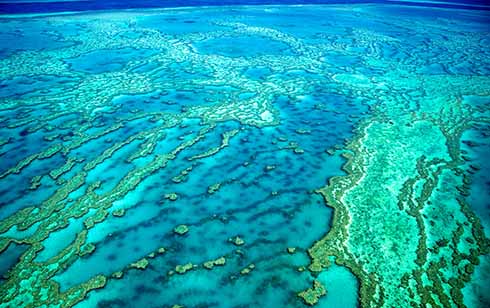 Pope Francis' Intentions for September is The Protection of the Oceans – that politicians, scientists and economists work together to protect the world's seas and oceans.
Pope Francis' Intentions for September is The Protection of the Oceans – that politicians, scientists and economists work together to protect the world's seas and oceans.
Pope Francis consistently invites us to look beyond ourselves, our narrow interests and convenience to look at our relationships to other people and our world. We then move away from exploiting people and things for our own benefit and begin to ask how we can serve the common good. We become responsible, aware of the costs of acting irresponsibly.
COST OF INATTENTION
In Australia we are experiencing the costs of inattention through the crisis in handling rubbish. For long we threw it in the bin; councils hired people to take it to dumps; dump owners exported it to poorer nations who bore with its toxic effects. Now other nations refuse to accept it and we face the costs of our profligate packaging, premature replacing, non-composting and other behaviour that fill garbage trucks and pollute our environment.
Pope Francis asks us to pray this month for the care of the oceans. He attributes their need for care to inattentive relationships, and he believes that their protection will depend on the cooperation of politicians, scientists and economists. And ultimately, of course, on ourselves for educating the scientists, checking the economists and electing the politicians.
RUBBISH DUMP
We can neglect the oceans because they are so great that we do not notice their limits. At first sight they may seem to form a splendid rubbish dump. The tide comes in to collect what is on the beach and takes it out to places out of sight and out of mind. Our sewerage, our plastic bags and factory effluents and mining tailings can wash down drains, find their way into streams and bays, and finally be magically taken away by our friendly oceans. And of course where better for ships to dump their rubbish and wash out their tanks?
Now, however, it is clear that the pollution of streams affects the spawning grounds of fish in many places and so the future supply of fish. The build-up of plastic disposed of in the sea also affects marine life.
We can see in the oceans, too, a never-ending source of food. They provide fish and once provided employment for fishermen who live around our coasts. Now the harvesting of food has become more sophisticated and conducted by large fleets with factory vessels, affecting the small- scale fishing in developing nations and threatening many species of fish.
Oceans have also been seen as Mr Reliable by householders. Each day they roll on to our shores and retreat, providing recreation, housing and employment at seaside suburbs and settlements. As the effects of global warming are felt more widely, however, seas will rise to threaten beaches, houses and roads around the world, and with them the insurance companies on which builders and buyers rely.
NEED TO WORK TOGETHER
Those are some of the crises affecting the oceans. Pope Francis prays that politicians, scientists and economists will work together to support them. These groups of people have a central place in the networks of relationships on which the oceans depend. Scientists are in the best position to identify what is happening to the oceans. Economists can estimate the financial benefit that the oceans bring to human beings around the world, the costs of pollution and of exploitation of the oceans and the resources saved by quick action. Politicians can publicise and endorse the results of research, and ensure that those who have polluted the oceans, melted the ice, used the seas as rubbish bins and exhausted the stocks of fish are prevented from continuing to do so.
To serve us sustainably oceans need our attention, our respect and our cooperation.